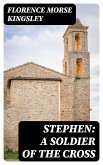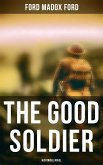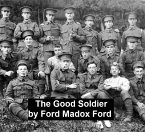Ford Madox Ford's "The Good Soldier" is a masterful exploration of deceit, betrayal, and the complexities of human relationships set against the backdrop of early 20th-century Europe. Through the clever use of an unreliable narrator, John Dowell, the narrative unfolds in a nonlinear fashion, inviting readers to piece together the truth of the tangled lives of two couples, the Dowells and the Ashbournes. The novel's rich prose and subtle ironies encapsulate the disillusionment and moral ambiguity of the post-Victorian era, revealing the darker side of what society often perceives as good. Ford Madox Ford, born into an artistic family in 1873, was influenced by the avant-garde literary movement and the tumultuous events surrounding World War I. His experiences as a soldier and a literary figure inspired him to delve into the psychological intricacies of human motivations and relationships. Ford's own tumultuous personal life, marked by infidelity and heartbreak, undoubtedly informed the poignant themes of love and betrayal found in "The Good Soldier." I highly recommend "The Good Soldier" for readers seeking a profound, introspective narrative that challenges societal norms and invites critical reflection on the nature of truth and morality. Ford's intricate character studies and evocative style make this book an essential read for those interested in modernist literature and the intricacies of the human condition.
Dieser Download kann aus rechtlichen Gründen nur mit Rechnungsadresse in A, B, BG, CY, CZ, D, DK, EW, FIN, F, GR, H, IRL, I, LT, L, LR, M, NL, PL, P, R, S, SLO, SK ausgeliefert werden.









